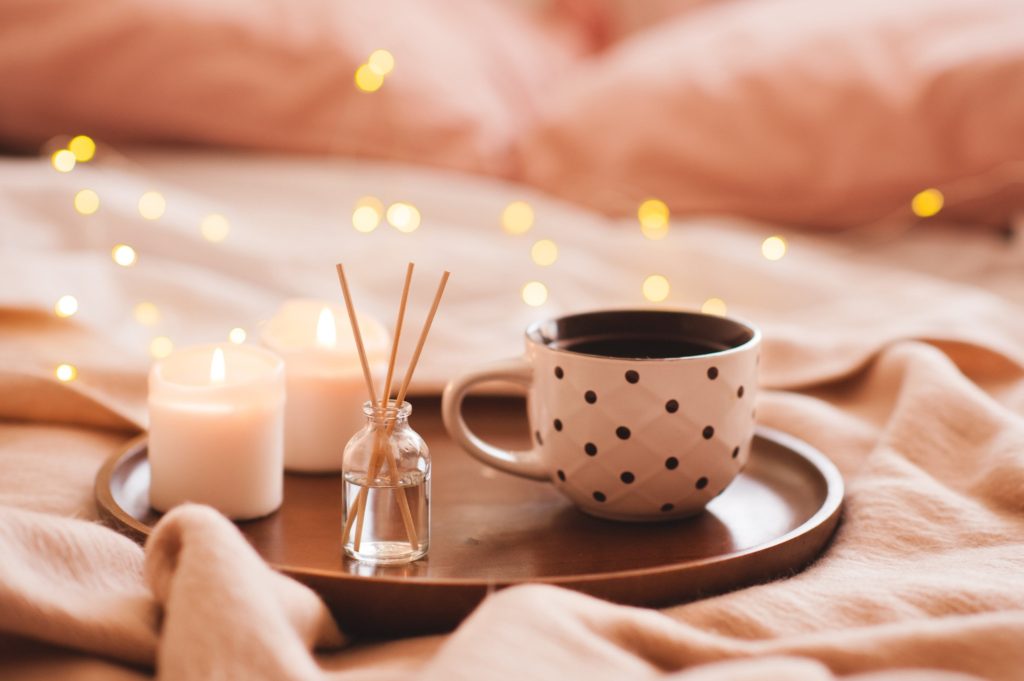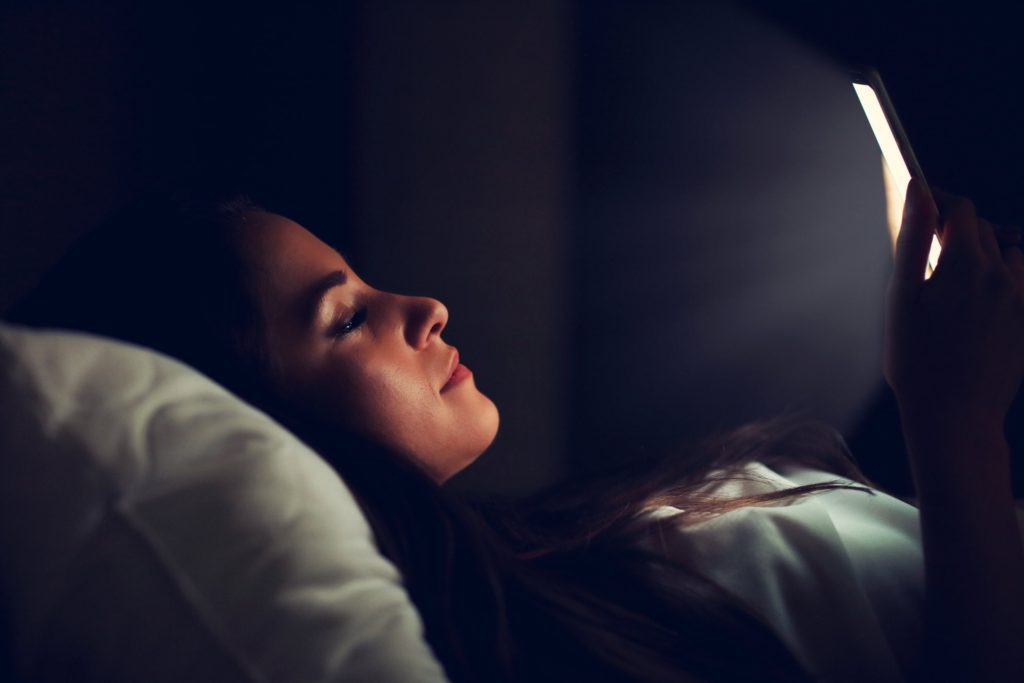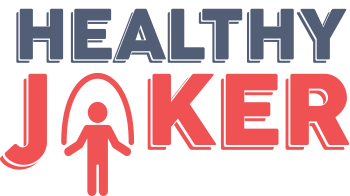Today’s app review is all about Glo, a fitness app that focuses on wellness in...
Read More9 Tips for Better Sleep
We’ve all heard what the saying, “early to bed and early to rise,” can do for a person. Yet, in today’s fast-paced world with electronic devices, overtime hours at work, and everyday stress, Ben Franklin’s advice is easier said than done. Despite our best efforts, we seem to get more and more distracted at night, resulting in a poor night’s rest.
That’s why we’ve decided to put together nine proven tips for better sleep. These tips to help you sleep are relevant and current. Feel free to try any of them out for yourself, so you can feel and see the results!
1. Bank Sleep
It’s simply a given that some days you’re going to miss out on a bit of sleep. Whether you’re going out with friends late at night or you have an early morning meeting you want to be prepared for (or both!), you’ll feel the strain on your body that day and later in the week.
Thankfully, there is a great strategy that’s been studied in recent years to help with this problem. We’re talking about banking sleep. Banking sleep simply means sleeping an extra amount of time in the nights before the night you know you’ll miss out on sleep.
Of course, this does require some planning throughout the week. Banking sleep requires six nights of getting an extra hour of sleep to be effective on the seventh night. Be honest with yourself, and allow yourself some extra sleep during the week if you know you’re going to be partying or traveling over the weekend.
2. Avoid Alcohol
Wait, isn’t alcohol good for sleep? While alcohol can aid in falling asleep, it goes against our tips for a good night sleep. Recent studies have shown that alcohol consumption can be detrimental to your overall quality of sleep. Why? Alcohol consumption disrupts the natural rhythms and cycles your brain follows in a quality night’s sleep.
More specifically, varying levels of alcohol consumption can disrupt Slow Wave Sleep (SWS) as well as Rapid Eye Movement (REM). Know that any amount of alcohol consumption before bed can affect sleep, but as expected, large amounts of alcohol seem to affect more of your total sleep cycle. So, if you’re going to drink, definitely try to limit your intake!
3. Limit Caffeine
Like alcohol, the same goes for caffeine. If giving up caffeine doesn’t sound like your cup of tea, don’t fret. There is a safe way to drink your cup of coffee that won’t disrupt your sleep. Caffeine intake is all about timing. While it’s true that consuming caffeine near bedtime can seriously thwart your efforts to fall asleep, drinking it earlier in the day might not have the same effect.
Caffeine is a stimulant with a half life of ~five hours. That means if you take 80mg of caffeine (about 8 oz of coffee), you’ll only feel the effects of about 40mg of caffeine five hours later. That’s why we recommended avoiding caffeine at least six hours before bed. See? You can still enjoy your morning cup and adopt our tips to help you sleep!
4. Drink Sleep-Enhancing Beverages

Although alcohol and caffeinated beverages should be avoided before bed, did you know there are soothing drinks that can enhance sleep? This is one of our favorite tips for better sleep because not only is it a nice way to settle down for the night but it’s helpful, too!
What should you look for? There are a couple of different avenues you can take when it comes to sleep-enhancing drinks.
Increasing your fluid intake of drinks that contain electrolytes and protein can help you get the most out of your sleep and even build muscle during sleep! If you want to go this route, milk and sugarless protein shakes are great options. If you want to focus on muscle recovery in your sleep (yes, that’s also a thing), we recommend tart cherry juice concentrate. If you simply want to feel total zen and find that state of calm before lights out, try lavender or chamomile tea – both are known for their relaxing properties. If none of those ideas sound great to you, just drink water. Staying hydrated is always better for your body than going to bed thirsty!
5. Stick to a Consistent Bedtime
Of all our tips on how to sleep through the night, this one will require some discipline, but you’ll reap the rewards! You should try to get to sleep at the same time every night. Pick a time of night that you’re normally tired at, and stick to it. Falling asleep at a consistent time should set an internal clock, meaning you’ll likely wake up at a consistent time each morning, as well. If you still rely on an alarm clock at this point, you’ll probably need to set an earlier bedtime.
Extra tip: Watch your naps! Naps can be beneficial, but if you nap for too long, your sleep schedule will potentially get off track. Try taking 15-minute power naps!
6. Stay Off Electronics

In recent years, we’ve seen exponential growth in studies linking blue light emitted from our electronic devices to our sleep. As convenient as our smartphones, tablets, and computers are, they’re quite harmful to use after dark. The nearer it is to bedtime, the more important it is to avoid our electronic devices. This is one of the most prevalent tips to get better sleep in this day and age.
Extra tip: If you have to use your device, turn down the brightness or set it to night mode. This will reduce your overall blue light exposure and make it easier to fall asleep.
7. Spend Time Outside During the Day
Spending time outdoors will improve your health in many ways. Sunlight can improve your vitamin D levels, your mental health, and of course, your sleep quality! Spending time outside (especially early in the day) can help your body’s internal clock understand what time of day it is. Early exposure to the sun will help you feel like you’ve had a full day when it comes time to sleep. That way, you’ll actually feel tired!
8. Exercise

Yep. Whether you like this tip for better sleep or not, exercise improves nearly all areas of your health. Exercise helps you fall asleep, improves the quality of your deep sleep, and can help reduce sleep apnea and insomnia. Generally, the more intense the exercise, the better you’ll sleep. Light exercise, like walking, can still be a sleep aid.
Bonus tip: Make sure to time your exercise properly. While exercising in the morning and afternoon can help you sleep better at night, exercising too close to bed can actually make it harder to sleep!
9. Dedicate Your Bed to Sleep
Last but not least, make sure to dedicate your bed to sleep. That means avoiding activities like watching tv, working, social media, etc. while in bed. Leaving your bed for sleep will help your brain associate the time in bed with sleep. You’ll fall asleep easier and be able to relax much better.
Which Tips for Better Sleep Will You Adopt?
As you go through the coming weeks, feel free to try some of these tips to help you sleep. Let us know what works! If you take one thing away from this article, let it be that sleep is important. Your quality of sleep affects your everyday life, so make it a priority. Take time to relax each day, and don’t let the stress of busy life get you down.
We hope you enjoyed this article. Check back for more health tips and tricks!
Other posts you may like
App Review: Nike Training Club
Read on to see what we think about Nike Training Club App! The app includes...
Read More

